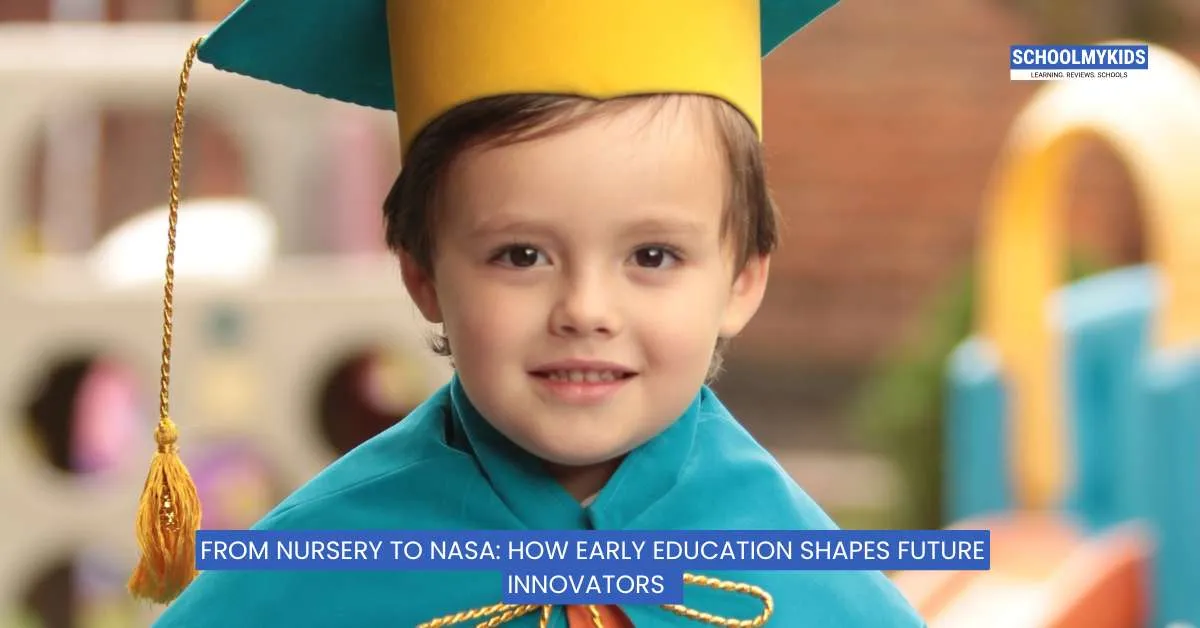We look at the architects of our future—the NASA scientists calculating interplanetary trajectories, the bio-engineers designing life-saving medicines, the software developers building our digital world—and we see genius. Their accomplishments seem like the product of a rare and exceptional intellect. But the reality is that the journey to such extraordinary heights doesn’t begin in a university laboratory or a high-tech incubator. Its origins are far more humble. The path from the sandbox to the stars is paved in the nursery, where the foundational skills for innovation are first nurtured.
The Unseen Blueprint: Foundational Skills in Early Years
The first five years of a child's life are a period of explosive brain development. It is during this time that the very architecture of the brain is formed, creating the neural pathways that will support all future learning. High-quality early childhood education is not about rote memorization or early academics; it is about building a robust intellectual and emotional blueprint. Core skills like critical thinking, creative problem-solving, collaboration, and resilience are not innate traits but are developed through experience and interaction. A well-run nursery is, in essence, a training ground for the very aptitudes that define a successful innovator.
Building Blocks and Rocket Ships: Play as Prototyping
Observe a child engrossed in building a tower of blocks. This is not mere play. This is an engineering exercise in its purest form. The child is testing hypotheses about balance, gravity, and structural integrity. When the tower inevitably collapses, the child doesn't see a failed experiment; they see a data point. They learn to analyze the failure—"Maybe the base was too small," "I put the heavy block on top"—and iterate on their design. This cycle of trial, error, analysis, and adaptation is the fundamental process of innovation. The NASA engineer debugging a complex propulsion system uses the same iterative methodology, just with more advanced tools. The mindset, however, was forged years earlier with a set of wooden blocks. This "permission to fail" in a low-stakes environment builds the resilience necessary to tackle high-stakes problems later in life.
The Collaborative Classroom: Training for Team-Based Innovation
Modern innovation is rarely a solo endeavor. From developing a new vaccine to launching a satellite, major breakthroughs are the result of large, collaborative teams. The skills required for this teamwork are honed in the social laboratory of a nursery classroom. Consider the complex negotiations involved when a group of four-year-olds decides to create a shared drawing or build a fort. They must communicate a vision, assign roles, manage resources, and navigate disagreements. They learn to listen to others' ideas, integrate different perspectives, and work towards a common goal. These early lessons in teamwork, empathy, and communication are the bedrock upon which effective professional collaboration is built. A brilliant scientist who cannot communicate their findings or work effectively with a lab team will see their potential severely limited.
Cultivating Curiosity: The Spark for Lifelong Discovery
Innovators are driven by an insatiable curiosity. They are the people who constantly ask "Why?" and "What if?" This inquisitive spirit is innate in young children but can be either nurtured or extinguished by their early environments. A quality nursery program champions curiosity. When a child asks why the sky is blue or how a caterpillar turns into a butterfly, a good educator doesn't just provide an answer; they encourage the process of discovery. They might respond with, "That's a great question. Where could we find the answer?" This approach teaches children how to learn. It validates their questions and empowers them to become active seekers of knowledge. This nurtured curiosity is the spark that fuels a lifelong passion for learning and the driving force behind all scientific exploration and discovery.
From Emotional Intelligence to Actual Intelligence: The Social-Emotional Bedrock
Often overlooked in discussions of achievement are social-emotional skills. A nursery is a complex social ecosystem where children learn to identify their own emotions and recognize them in others. They learn patience while waiting for their turn, empathy when a friend is upset, and self-regulation when they feel frustrated. This emotional intelligence (EQ) is not a "soft skill"; it is a critical component of overall intelligence and success. It allows an individual to persevere through setbacks, accept constructive criticism, and lead a team with compassion. The most brilliant ideas can falter without the emotional maturity to navigate the human challenges of bringing them to fruition.
The trajectory from nursery to NASA, from the playroom to the boardroom, is a continuous one. When we invest in high-quality early childhood education, we are doing more than preparing children for the next grade level. We are laying the essential groundwork for the next generation of pioneers. We are nurturing the resilience, creativity, and collaborative spirit required to solve the world's most complex problems. The future is being built, quite literally, one block at a time.








Be the first one to comment on this story.